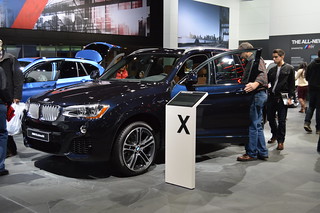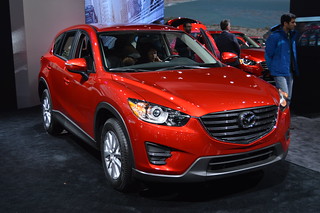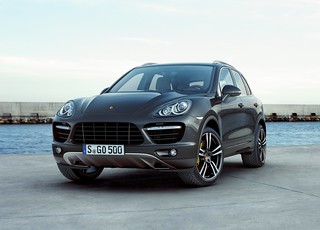Today’s auto industry is incredibly versatile. The latest models available in the market are tech-enabled, lightweight, easy to drive, and ultimately, eco-friendly. Choosing a type that lives up to your expectations can be a challenge tough. Green cars in particular, have won a lot of ground lately. Even top tier manufacturers like BMW, Porsche and Tesla have models you need to check out. Green cars are not just conveniently priced. Some of them feature benefits that go beyond the mere meaning of an eco-friendly vehicle that drives slowly. Here are 5 top green cars that managed to rule 2016, thus far.
- BMW X3
BMW’s latest X3 model works on clean diesel. The fact that is packs an alternative engine doesn’t affect its speed ratio and driving range while on the road. On the contrary, the car has an EPA estimated mileage of 27-34-30 mpg for highway and city driving combined. There’s also a 6 mpg included that claims to be more efficient that X3 models that are gas-powered. The eco-friendly model is with just $1,500 more expensive than the classic model, so we would say it’s worth taking a chance and choosing the hybrid variant. The eco-friendly BMW X3 can easily handle 600 miles with a tank of gas and an alternative electrically-powered motor; which is pretty good.
- Lexus CT 200h
On the market for an affordable eco-friendly car? Look no further and go with a Lexus. The latest CT 200h model packs an estimated EPA of 43-40-42 mpg both on a highway and in the city. Featuring a compact, good-looking appearance and sporty personality, Lexus CT 200h is pretty fun to drive. It has a hatchback body and folding backseats to compensate for the small size. Incredibly versatile, this car is everything you need to travel the world. The blend of sporty character and fuel economy makes the CT a sleek vehicle with a starting price of $30,000.
- Mazda CX-5
Who says you can’t have fun while driving an efficient cars? As a matter of fact, you can and the latest CX-5 model from Mazda will exceed your expectations. Those looking to invest in fuel-efficiency should definitely have a closer look at this variant. The CX-5 has an EPA rate of 26-35-29 mpg on highways and in cities; it packs a 6-speed manual transmission, nice-looking body and excellent driving. Among some other benefits, we must also talk about the smooth handling, excellent front seats, expressive design and efficient powertrain. Known as a competent athletic crossover, the CX-5 starts a price of $21,000; variants with automatic transmissions feature slightly higher prices beginning from $29,000.
- Toyota Avalon Hybrid
Toyota is a car manufacturers that has been dominating the auto industry (hybrid sector in particular) for many years. It shouldn’t come as a surprise that the newest Avalon Hybrid model is a top-seller. Featuring consistent mileage improvements compared to other models that work on gas, the hybrid variant has an estimated EPA of 40-39-40 mpg, the highest when compared to similar sedans currently available. The rating improves on non-hybrid Avalon models by an astounding 19 mpg, thus making the vehicle an excellent choice for families and commuters constantly on the go. It also prides with a well-controlled system, responsive & refined powertrains, spacious interiors, and advanced safety tech.
- Porsche Cayenne S Hybrid
We never pictures Porsche as a hybrid fan, but then again you must give people what they want to be able to live up to the competition. The latest Cayenne S Hybrid actually pretty great. As opposed to most luxury hybrids on the market, the Cayenne S packs smooth driving, increased efficiency and groundbreaking tech advances. The model is the proud owner of 3.0 l super-charged V6 motor and an infused 70 kW electric engine. When combined, these two powertrains pack a total of 416 hp. With permanent all-wheel drive and an 8-speed automatic transmission, it’s safe to say that the Cayenne S Hybrid is spectacular.
The auto industry was taken by storm this 2016 by eco-friendly cars. The array of models is endless, and it’s safe to say that this is just the beginning. Faster hybrids are coming up next, as well as faster fully-electrics. Manufacturers are constantly striving to wow its customer base, whether they’re average buyers searching for convenience or top-tier collectors hunting for the most exclusive models on the market. As far as future expectations are concerned, there’s no doubt that in the following 5 years all the above mentioned manufactures will come up with even better variants.
By Christopher Austin and Design911.co.uk!







 Image Source
Image Source